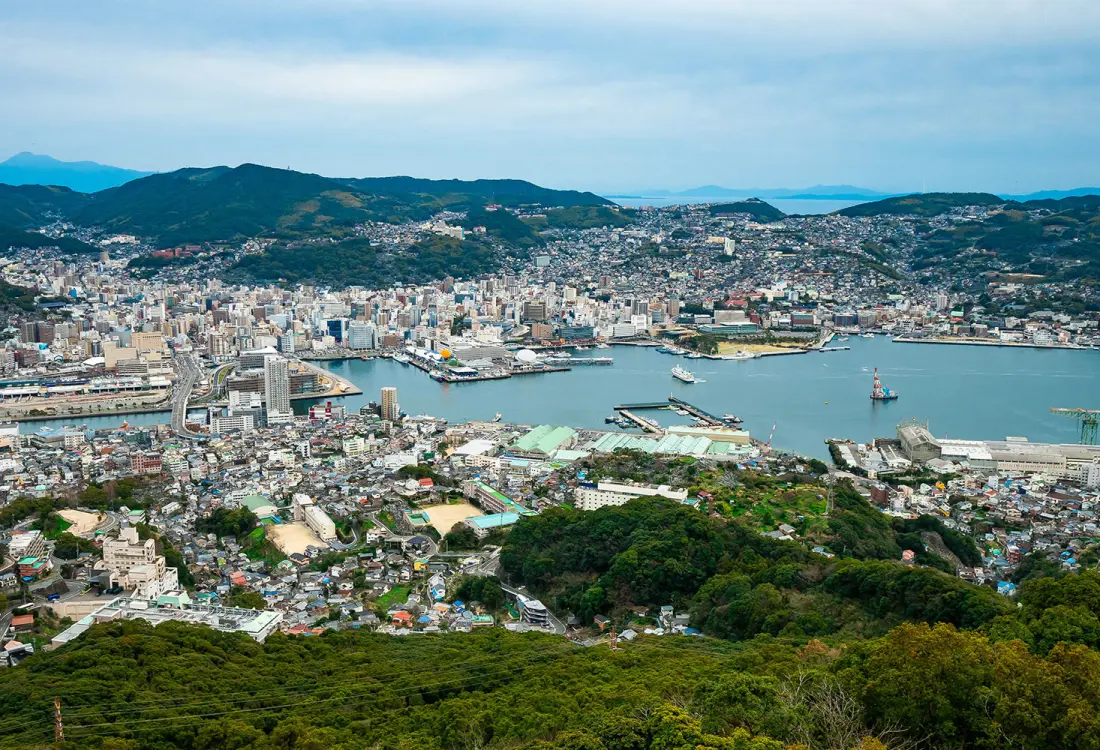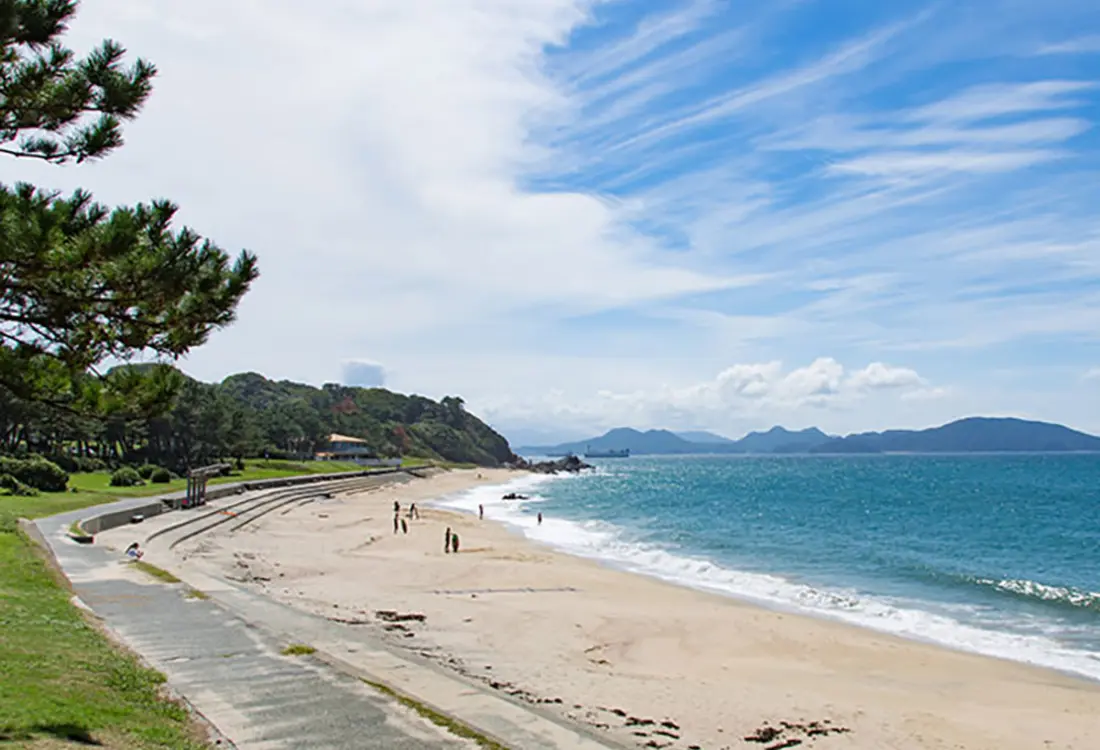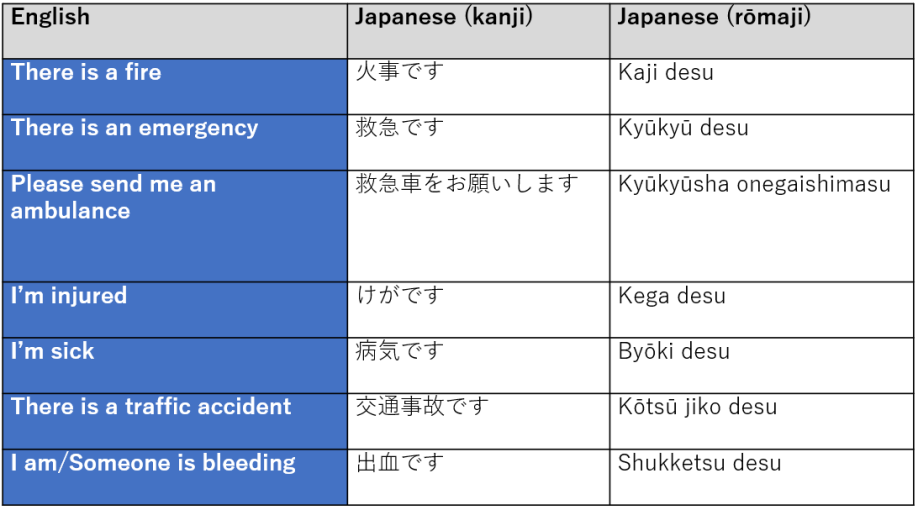
Good to Know
How to make the most of your trip
Kyushu is Japan's warm and friendly southern island, with verdant green hills, active volcanoes, abundant hot springs and delicious food. It's also well connected to the world, with many transport options, lively cities and free Wi-Fi in many areas. Here are some tips on when to go, where to stay and how to make the most of your trip.
Kyushu is known for warm, humid summers and mild winters, making it easy to visit in all seasons. Summer often brings rainfall to the area, and there can be typhoons from July to October. The spring cherry blossoms start to bloom around late March, a little earlier than the rest of Japan. It's a good idea to check the weather before you go.

There are accommodation options to suit all budgets and travel styles, from luxurious private villas and international hotel chains to traditional inns and farm stays. Business hotels are an affordable option in the main cities, often located near major stations and airports. In hot spring resorts, you will find traditional Japanese inns (ryokan), which offer warm hospitality and multi-course meals featuring local ingredients. Most rooms are Japanese-style, with futon bedding on a tatami floor. Some have private hot spring baths. To experience local life, you can stay at a family-run bed and breakfast (minshuku). These tend to provide simple Japanese-style accommodations, with breakfast.

There is a Tourist Information Center at each of Kyushu's regional airports, at major train stations and some sightseeing spots. Many have multi-lingual staff and services like luggage storage and printing. Larger centers such as Acros and Canal Tourist Lounge in Fukuoka, offer cultural experiences, from craft to wearing kimono.

Japan is well-known for its seismic activity. Most earthquakes are too small to be noticed, but if you experience a larger earthquake, stay inside, take shelter under a table if necessary and follow instructions. Kyushu can get heavy rain and typhoons in late summer, and trains and flights may be delayed. Stay inside if a typhoon hits. There are several active volcanoes across Kyushu, and access may be closed when there is a risk of eruption. For more advice about staying safe in Japan, you can visit the Tokyo Metropolitan Police Department website.

For domestic access by air, you can visit Kyushu within one hour from Osaka, and one-and-a-half hour from Tokyo. There are no direct flights from Europe or the United States, but you can easily fly to Fukuoka Airport with a transfer in Tokyo or Seoul (South Korea).
By shinkansen, the Japanese bullet train, you can visit Kyushu within three hours from Osaka, and five hours from Tokyo. While Kyushu is technically an island, the third-largest of Japan, it is connected to Honshu and can be accessed by car. Please note that you will have to bring your international driver’s license. More information on renting cars and traffic rules can be found here.
Non-Japanese citizens who are visiting Japan for the purpose of sightseeing, and are traveling on a temporary visitor visa can benefit from the JR Kyushu Railway Pass. The e-ticket can be purchased through JR Kyushu’s online booking system, and needs to be picked up at one of Kyushu’s stations upon arrival. Kindly refer to JR Kyushu’s official website for detailed information.
We’re excited to welcome you! We’ve already prepared an overview of the best trips to take for you. Feel free to check out our trip ideas for unforgettable itineraries, or browse through our travel blogs to get a better feel of the adventures that await you in Kyushu.
There are free Wi-Fi spots in major cities, at train stations, hotels and many restaurants. You can find an overview of Kyushu infrastructure maps here. However, if you are traveling to more remote areas, renting a pocket Wi-Fi unit or a SIM card is recommended. You can rent these at airports or online before you arrive. Many online services will deliver to your hotel.
There are currency exchanges at the airports and at some large post offices and banks. ATMs in post offices and Seven-Eleven convenience stores accept international cards. More shops and restaurants are now using cashless smartphone payments such as Apple Pay, Line Pay and PayPay, but cash is still the most popular method of payment.
With a long history of welcoming international travelers, Kyushu is comfortable for visitors of all faiths. For Muslim visitors, there are halal food options and prayer spaces. You can find an overview of halal maps here. Vegetarian and vegan travelers will find food options in larger cities across Kyushu. Be aware that in some smaller towns, fish may be considered a vegetarian option, so ask if your meal contains fish or fish stock (dashi). Soy milk is widely available at supermarkets and major cafe chains.
As Kyushu is the southernmost of the major Japanese islands, its winters are mild and summers can get humid and rainy. Make sure to bring a light coat with you, as rainfall is abundant, especially in summer. Kyushu has four distinct seasons, with a stunning palette of fall colors in autumn and lush green summers. Snowfall in winter is rare but may occur, so you might want to pack light boots.
In case of emergencies while on holiday in Kyushu, call:
• 119 for Ambulance or Fire
• 110 for Police

Where is my nearest embassy/consulate?
Please refer to this list to see where the nearest embassy or consulate of your country is located.
I don’t speak Japanese well, how do I get around Kyushu?
Most of the tourist spots in Kyushu have Tourism Information Centers, which you can visit for information in English. When driving a car, all information and name signs are displayed in English as well. Travelers generally do not have difficulty getting around in Kyushu, but it’s always a great idea to have your itinerary planned (and printed) before you visit.
Below is a list of basic Japanese phrases that you can use when visiting Kyushu.

Konnichiwa! Kyushu locals look forward to meeting you, and love to learn everything about your culture. That being said, they might not be very familiar with your customs. Kindly keep the following in mind:
• Shaking hands or hugging is not a usual way of greeting people in Japan. Say konnichiwa instead, and feel free to combine it with a light bow!
• Public displays of affection should be kept to a minimum. While holding hands is accepting, please refrain from kissing in public
• Do not smoke in public; only smoke in designated areas
• Don’t worry about tipping in Kyushu, as tipping is not practiced in Japanese culture
• Slurping your Hakata ramen noodles is totally fine! The louder, the better!
• While taking public transport, please keep quiet and refrain from taking phone calls
• Kindly take off your shoes when entering your hotel room, people’s houses, fitting rooms, and in other occasions when requested
Kyushu is a naturally socially distanced location due to its nature-abundant character. Please refer to the Japan National Tourism Organization’s official website for the latest updates.
Book your perfect stay in Kyushu with thousands of properties to choose from







